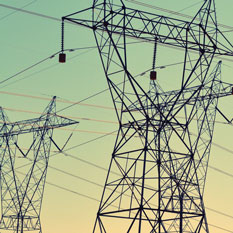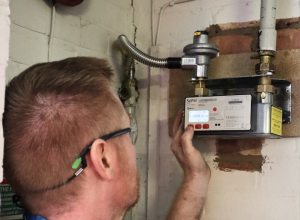When Chancellor George Osborne delivered his budget on Wednesday 16th March 2016 the main focus in the media was making all schools into academies, a longer school day, and freezing beer duty. What many organisations may have overlooked was news that the Treasury plans to replace the Carbon Reduction Commitment Energy Efficiency Scheme (CRCEES) and indicated changes to the Climate Change Levy (CCL) from 31st March 2019.
Peter Leggett, Energy & Carbon Consultant at IMServ believes the potential changes could come as a shock to organisations as any new scheme is likely to encompass all fuels, as well as incorporating smaller-sized businesses, hospitals, colleges and public sector buildings who may have previously been outside CRCEES.
Peter Leggett explains, “Over the last decade there have been various schemes that have been introduced to encourage the uptake of energy efficiency and low carbon reporting. What has defined most of the schemes has been their complexity. Some businesses have had to comply with CRCEES reporting and buying allowances; report emissions through Mandatory Green House Gas Reporting; maintain compliance within schemes such as ISO14001/50001 or Carbon Trust Standard, as well as considering new audit and report requirements under ESOS. It’s all been very time consuming, often repeating with a different slant of results and, so at times, confusing.”
“The implication is that use of the CCL framework, which operates on a pence per kilowatt-hour rating has the potential to simplify revenue to HM’s Government yet at the same time draw more sites, organisations, and potentially more fuel types into the fold. Under CRCEES Phase 2, businesses didn’t need to buy emissions for LPG, small gas or oil use, just for large electricity and gas consumptions. Pre-empting the direction of the consultation slightly, I suspect this is likely to change once CRCEES Phase 2 closes on 31st March 2019.”
“Many businesses that come under CRCEES are getting figures together for the end of the year and ensuring that they have sufficient budget to pay for allowances. But, for those organisations that were not participants in CRC they may not have yet realised the potential change and impact of increased CCL rates.”
“If we take a ‘like-for-like’ conversion using the ‘buy to comply’ rate for March 2019 indicated by DECC ( £18.30 per TCO2e) the revenue equivalent would have to add 1 pence onto CCL electricity kWh (about 0.3 pence to gas CCL).”
Peter continued, “In this respect, if as I suspect CCL rates would change for all energy users, then by example, if an organisation was currently outside CRCEES consuming 2,000,000kWh such rate increase could add £20,000 to the utility costs; proportionally this could be a 4-7% increase.”
Across the board the Government is still consulting on reforms to reduce the administrative and compliance burden on businesses and simplify energy efficiency reporting, and Peter believes removal of CRCEES will go some way to achieving this aim. When the opportunity arises, business should add its voice to such consultations. Regardless of change and outcomes, there are still areas that organisations can look at to ensure that when any new system is introduced they are ready.
Tips from IMServ:
1. Look at tightening up your organisation’s energy management process on your whole estate. Take a look at energy consumption on smaller sites, not just on larger, more energy intensive buildings, especially if an energy management programme has been in place for some time.
2. Consider what the implications would be on energy budgets if CCL increases and takes into account all fuel types.
3. Reporting will continue to be a key feature of any new scheme. Ensure your organisation is capturing information across all utility usage now, and sharing data to define management strategy, consumption and cost decisions.
–ENDS–
About IMServ (www.imserv.com)
IMServ Europe Ltd is one of the UK’s largest independent energy data management providers. The company offers carbon and energy management solutions, helping organisations across all sectors to save energy, reduce costs and control carbon emissions.
IMServ offers an all-inclusive portfolio that covers data collection, analysis, reporting and carbon management. To date over 250,000 sites in England, Scotland and Wales are benefiting from its solutions.



